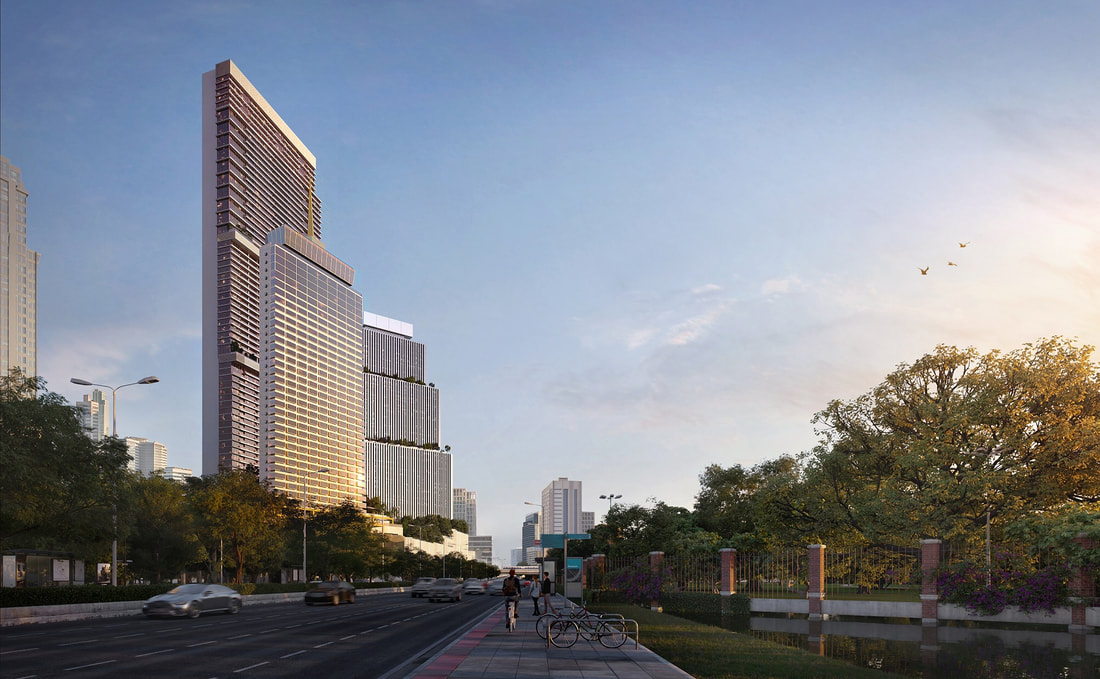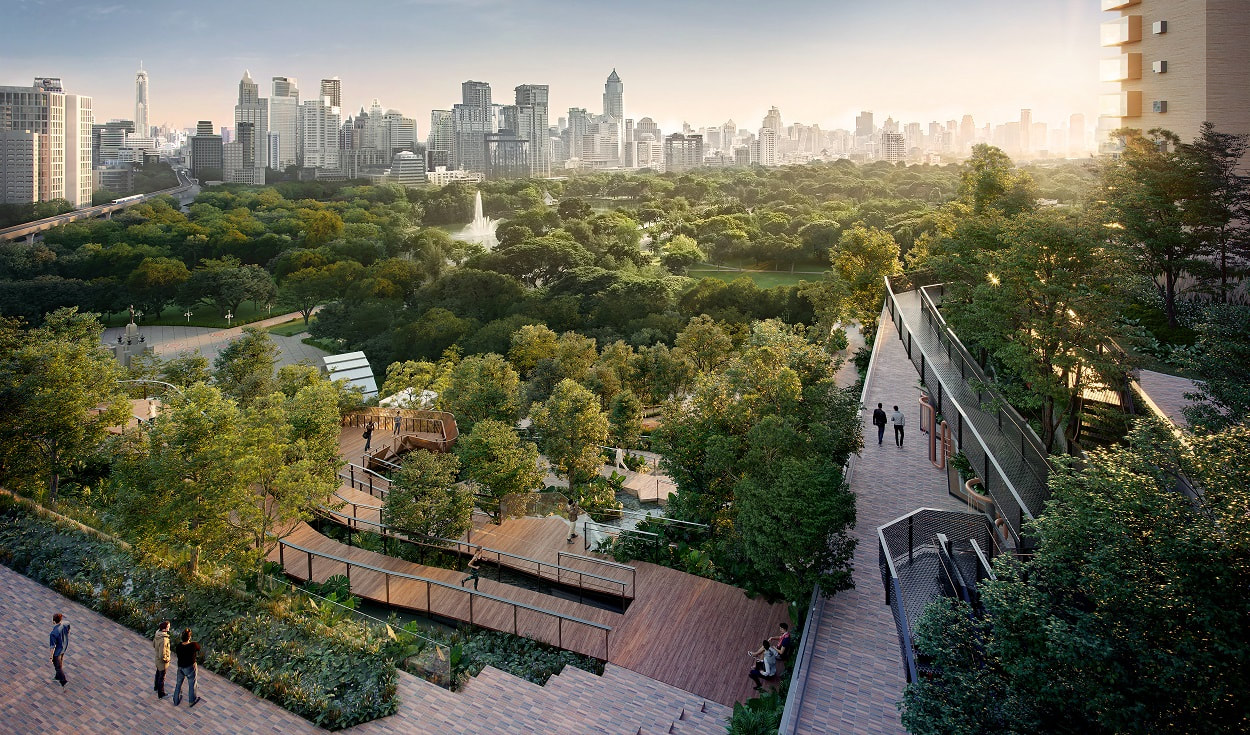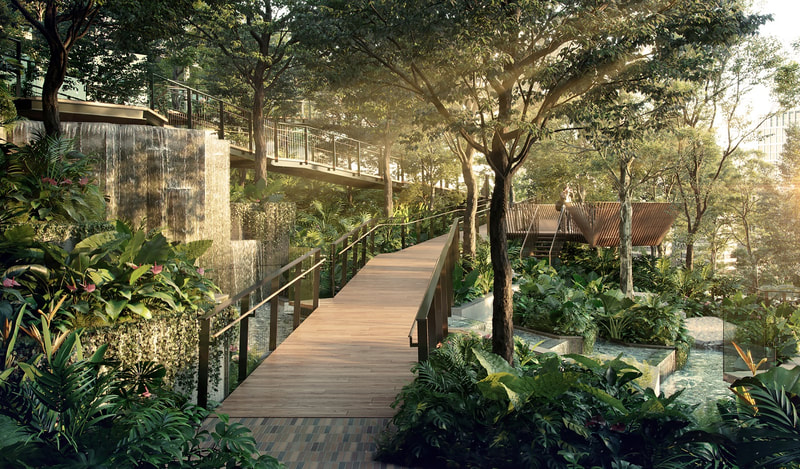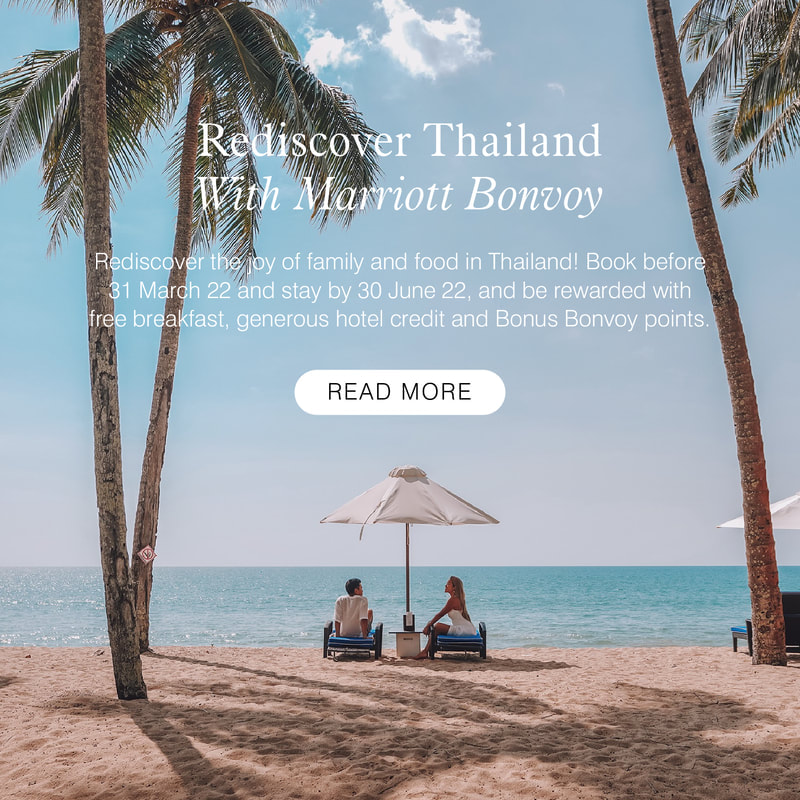Like most industries, the COVID-19 outbreak left a profound impact on the Thai real estate market. This partly stems from uncertainties surrounding expats moving back home and selling their condos, office vacancies, as well as temporary closure of retail spaces as a result of strict social distancing measures. There were also a lack of tourist visits from 2020 to 2021, causing property prices to drop, which in turn affected the Thai economy.
In terms of the Thai real estate market, the Real Estate Information Center (REIC) of Thailand states that the Thai housing market will return to pre-pandemic levels by the end of 2023[1]. This is sooner than previously predicted due to the policy to relax mortgage regulations, the country opening to foreign tourists, especially Chinese tourists who consider Thailand as their top outbound travel destination after the Chinese government announced the opening of the country. Thus, there are many factors that stimulate investment in various sectors of the real estate market that helps promote the growth of the Thai real estate market as a whole.
Residential Real Estate
The 2023 Thailand Real Estate Market Outlook report by CBRE[2] revealed that the occurrence of the pandemic over the past three years has changed consumer behaviors and demands for housing and workspace. Whereby, a strong example of this is the prevalence of the work from home trend. Therefore, real estate developers, especially in luxury projects are encouraged to pay attention to design details according to the demands of leasers. Some examples of these demands include emphasis on comfort, modernity, and increased recreational spaces, which all contribute to an improved quality of life.
Moreover, due to the spread of the COVID-19 virus and the complexity of the Chinese real estate market, Southeast Asia and the Middle East have become the top potential markets in the eyes of Chinese investors. This especially holds true for Thailand, whereby the government recently approved, in principle, a draft ministerial regulation on the acquisition of land for use as a residence for foreigners[3] in accordance to measures to stimulate the economy and investment by attracting expats and foreign investors with high potential to Thailand. In other words, foreigners who meet certain criteria set by the government will be able to buy and own real estate in Thailand.
In terms of the Thai real estate market, the Real Estate Information Center (REIC) of Thailand states that the Thai housing market will return to pre-pandemic levels by the end of 2023[1]. This is sooner than previously predicted due to the policy to relax mortgage regulations, the country opening to foreign tourists, especially Chinese tourists who consider Thailand as their top outbound travel destination after the Chinese government announced the opening of the country. Thus, there are many factors that stimulate investment in various sectors of the real estate market that helps promote the growth of the Thai real estate market as a whole.
Residential Real Estate
The 2023 Thailand Real Estate Market Outlook report by CBRE[2] revealed that the occurrence of the pandemic over the past three years has changed consumer behaviors and demands for housing and workspace. Whereby, a strong example of this is the prevalence of the work from home trend. Therefore, real estate developers, especially in luxury projects are encouraged to pay attention to design details according to the demands of leasers. Some examples of these demands include emphasis on comfort, modernity, and increased recreational spaces, which all contribute to an improved quality of life.
Moreover, due to the spread of the COVID-19 virus and the complexity of the Chinese real estate market, Southeast Asia and the Middle East have become the top potential markets in the eyes of Chinese investors. This especially holds true for Thailand, whereby the government recently approved, in principle, a draft ministerial regulation on the acquisition of land for use as a residence for foreigners[3] in accordance to measures to stimulate the economy and investment by attracting expats and foreign investors with high potential to Thailand. In other words, foreigners who meet certain criteria set by the government will be able to buy and own real estate in Thailand.
Office Market
In general, supply per rent of office spaces in Bangkok continues to increase, especially in the post-pandemic era. This is because old office buildings that are more than 20 years old are starting to become outdated as modern trends emerge. This is not just due to the location, but also the lack of a complete workplace solution, the inability to deliver a closer connected experience for tenants, as well as a lack of modern facilities.
At the same time, people are also putting more emphasis on environmentally friendly working environments, as well as the LEED and WELL certificates, which is a big draw factor for modern day talent acquisition and workforce retention. Therefore, instead of investing in office renovations, business owners (tenants) are now looking for new, turnkey office space alternatives.
Retail Centers
Although the Thai e-commerce market continues to grow today, report by KKP Research under
Kiatnakin Phatra Financial Group[4] reveals that the value of e-commerce purchases by Thai consumers is still as low as 9% of total retail sales. Evidently, human beings still want to interact and select products themselves in offline storefronts. This especially holds true in the post-COVID era where real-life human contact is desired and sought after. Thus, project developers and entrepreneurs are incentivized to renovate shopping centers, storefront or offline platform to support this growing demand. Examples include, providing additional areas for relaxation, creative recreational areas and facilities, art galleries, pet friendly parks and outdoor activities for families, etc. In addition, there is also an increase in popularity of medium-sized shopping centers, which results in retailers developing medium-sized retail stores to meet the demands of shoppers in the future.
Mixed-Use Developments
Driven by the rising demand for housing close to the city center and the need to add value to shopping centers with larger capacities and comprehensiveness, big real estate developers are beginning to take the mixed-use approach. A mixed-use project is a solution that combines both luxury residences, office buildings, 5-star hotels, cinemas, event spaces, educational and childcare resources, complete shops and services, etc., in a one-stop destination, often located in the heart of a major economic area in a big city.
In Bangkok, the Dusit Central Park project is another major and historically important investment in the development of mixed-use projects, located on the corner of Silom-Rama 4 Road. The potential of such a location has developed a great deal from when the former Dusit Thani Hotel was still a landmark. Whereby, the price of land in the Silom area has been assessed and last updated in 2022 from the Treasury Department specifies that the maximum number is 1,000,000 baht per square wah. If considering only the price of land that is being used to develop the project, the price of land will be higher than 9,000 million baht, which gives the project its competitive edge.
The urban re-development concept is therefore being used with the transition of Dusit Thani, which is a potential location that is known to be the priciest in Bangkok. This will also contribute to the transformation of the Silom business center as an outstanding and iconic landmark of Bangkok. The project will be divided into 4 parts, namely Dusit Thani Bangkok Hotel, Dusit Residences, Central Park Offices and Central Park lifestyle center. Based on these elements, Dusit Central Park will become a mega real estate project that can attract investment and generate enormous economic value.
However, Dusit Central Park would not be able to live up to its Central Park name if not for the large green landscape design under the name “Roof Park”, a 7-Rai floating park located at the heart of the project. The Roof Park is embraced by the four Dusit Central Park buildings and is expected to be the main highlight of the project, showcasing the highest land utilization for public benefit and is conducive to the new lifestyles of urban dwellers.
In terms of designing the area to be conducive to the community and create a connection between the project and the Silom-Rama 4 area, Somkiat Lochindapong Deputy Managing Director of Architects 49 Co., Ltd. (A49), one of the architects involved in the development and design of the Dusit Central Park project, reveals the concept behind the design of the mixed-use building as stated, “A similar factor of Bangkok's CBD as a business district potential is that there must be a connection to the BTS SkyTrain and MRT, with a corner street location. For example, the Asoke-Sukhumvit Intersection and the Silom-Rama IV intersection, whereby I consider that the traffic is a good indicator of the potential for growth and expansion of the city and business. The specialty of the corner of Silom Road, which is the location of Dusit Thani is having what is called ‘Emotion’ from the perspective of Lumpini Park’s luscious natural surroundings, which is positioned exactly opposite to the location. We also know that there is no CBD location that has both Traffic and Emotion quite like Silom.”
The growth trend of the Thai real estate market in 2023 is promising for a number of reasons, namely, the shift in government policies, the growth of the tourism sector in 2023, the strategic location, the reasonable pricing, the designs that meet the lifestyles of modern people and more. These elements have created a conducive environment for real estate developers and investors to initiate the development of more commercial and residential real estate in the country. In addition, the development of mixed-use projects will also help enhance peoples’ quality of lives in terms of social and environmental aspects, as well as help stimulate the economy and in turn revitalize the country after the COVID-19 crisis.
In general, supply per rent of office spaces in Bangkok continues to increase, especially in the post-pandemic era. This is because old office buildings that are more than 20 years old are starting to become outdated as modern trends emerge. This is not just due to the location, but also the lack of a complete workplace solution, the inability to deliver a closer connected experience for tenants, as well as a lack of modern facilities.
At the same time, people are also putting more emphasis on environmentally friendly working environments, as well as the LEED and WELL certificates, which is a big draw factor for modern day talent acquisition and workforce retention. Therefore, instead of investing in office renovations, business owners (tenants) are now looking for new, turnkey office space alternatives.
Retail Centers
Although the Thai e-commerce market continues to grow today, report by KKP Research under
Kiatnakin Phatra Financial Group[4] reveals that the value of e-commerce purchases by Thai consumers is still as low as 9% of total retail sales. Evidently, human beings still want to interact and select products themselves in offline storefronts. This especially holds true in the post-COVID era where real-life human contact is desired and sought after. Thus, project developers and entrepreneurs are incentivized to renovate shopping centers, storefront or offline platform to support this growing demand. Examples include, providing additional areas for relaxation, creative recreational areas and facilities, art galleries, pet friendly parks and outdoor activities for families, etc. In addition, there is also an increase in popularity of medium-sized shopping centers, which results in retailers developing medium-sized retail stores to meet the demands of shoppers in the future.
Mixed-Use Developments
Driven by the rising demand for housing close to the city center and the need to add value to shopping centers with larger capacities and comprehensiveness, big real estate developers are beginning to take the mixed-use approach. A mixed-use project is a solution that combines both luxury residences, office buildings, 5-star hotels, cinemas, event spaces, educational and childcare resources, complete shops and services, etc., in a one-stop destination, often located in the heart of a major economic area in a big city.
In Bangkok, the Dusit Central Park project is another major and historically important investment in the development of mixed-use projects, located on the corner of Silom-Rama 4 Road. The potential of such a location has developed a great deal from when the former Dusit Thani Hotel was still a landmark. Whereby, the price of land in the Silom area has been assessed and last updated in 2022 from the Treasury Department specifies that the maximum number is 1,000,000 baht per square wah. If considering only the price of land that is being used to develop the project, the price of land will be higher than 9,000 million baht, which gives the project its competitive edge.
The urban re-development concept is therefore being used with the transition of Dusit Thani, which is a potential location that is known to be the priciest in Bangkok. This will also contribute to the transformation of the Silom business center as an outstanding and iconic landmark of Bangkok. The project will be divided into 4 parts, namely Dusit Thani Bangkok Hotel, Dusit Residences, Central Park Offices and Central Park lifestyle center. Based on these elements, Dusit Central Park will become a mega real estate project that can attract investment and generate enormous economic value.
However, Dusit Central Park would not be able to live up to its Central Park name if not for the large green landscape design under the name “Roof Park”, a 7-Rai floating park located at the heart of the project. The Roof Park is embraced by the four Dusit Central Park buildings and is expected to be the main highlight of the project, showcasing the highest land utilization for public benefit and is conducive to the new lifestyles of urban dwellers.
In terms of designing the area to be conducive to the community and create a connection between the project and the Silom-Rama 4 area, Somkiat Lochindapong Deputy Managing Director of Architects 49 Co., Ltd. (A49), one of the architects involved in the development and design of the Dusit Central Park project, reveals the concept behind the design of the mixed-use building as stated, “A similar factor of Bangkok's CBD as a business district potential is that there must be a connection to the BTS SkyTrain and MRT, with a corner street location. For example, the Asoke-Sukhumvit Intersection and the Silom-Rama IV intersection, whereby I consider that the traffic is a good indicator of the potential for growth and expansion of the city and business. The specialty of the corner of Silom Road, which is the location of Dusit Thani is having what is called ‘Emotion’ from the perspective of Lumpini Park’s luscious natural surroundings, which is positioned exactly opposite to the location. We also know that there is no CBD location that has both Traffic and Emotion quite like Silom.”
The growth trend of the Thai real estate market in 2023 is promising for a number of reasons, namely, the shift in government policies, the growth of the tourism sector in 2023, the strategic location, the reasonable pricing, the designs that meet the lifestyles of modern people and more. These elements have created a conducive environment for real estate developers and investors to initiate the development of more commercial and residential real estate in the country. In addition, the development of mixed-use projects will also help enhance peoples’ quality of lives in terms of social and environmental aspects, as well as help stimulate the economy and in turn revitalize the country after the COVID-19 crisis.























